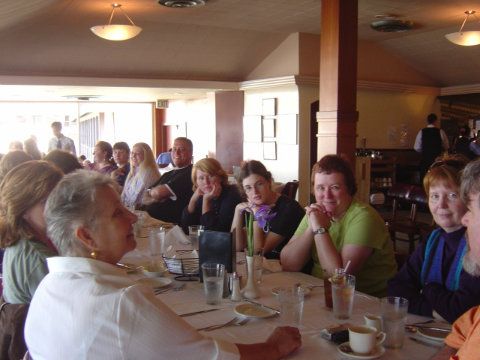Yes I am new to these boards, though I have left a note of introduction in the introduction forum.
In this review of George RR Martin's latest Song of Ice and Fire installment, the argument is made and developed that Martin's kind of fantasy is representative of our age (and Tolkien's apparently representative of an earlier one). The review isn't a criticism of Tolkien, but it still, I think, misses the mark with Tolkien. Where Martin has a complicated politics, Tolkien is just "Good" vs "Evil". Where Martin's characters are complex, complicated (and various other buzz words) Tolkien's are merely "noble".
A revealing quote from the essay: It’s impossible to know whom to root for. “Many good men have been bad kings,” one character says, “and some bad men have been good kings.” Not even God decides who is wrong or right. Each side has its own gods, and they’ll back whoever prays to them.
This may be true, insofar as Martin's world is concerned. If we apply Tolkien's moral standards to Martin's world, none of the characters, or very few, could be considered virtuous.
What I find interesting is that Martin's text discourages the reader from making moral judgements about any character in particular - I think this is the crux of the difference between Martin (and most fantasy these days) and Tolkien - Where Tolkien offers a limited interpretive space in his text for moral judgement; where, for example, Frodo, Sam and those on the 'good' side are clearly right (in the narrowest ethical sense of the term) due to the 'rightness' of their mission (and despite the flaws they may have), Martin's text regularly repulses the reader, but retreats from asking the reader to make any moral judgement equivalent to the moral judgement a character like Sauron so clearly deserves.
Martin is not the only author to engage in this kind of writing. Moorcock comes to mind, as does Poul Anderson's Broken Sword. In that work, 'Faery' is divided into various mythological species, much like Martin's kingdoms and houses, who fight each other for supremacy. There is no moral reason for them to fight: they are not defending anythin in particular, they are just fighting because that is what they do. Explanations are not forthcoming.
It seems to me that this moral crux is the biggest difference between Tolkien and other fantasy writers. I'm not sure who's got the better idea here either: I suspect that Tolkien's worldview, for all his religiousness, is the more 'humanistic' one in that it depicts a moral world (much like our own) where characters are held responsible for their ethical choices.
In contrast, Martin, Anderson et al. depict worlds of intense (it seems to me) nihilism. I certainly want to differentiate Moorcock from Martin here; where Moorcock is merely nihilistic, Martin's characters display some sense of ethical compass (if less atuned than Gandalf's for example).
Anyway, enough rambling. Here's a link to the review: http://newsretrieval.info/?p=624
Thoughts? queries? Points of debate?



